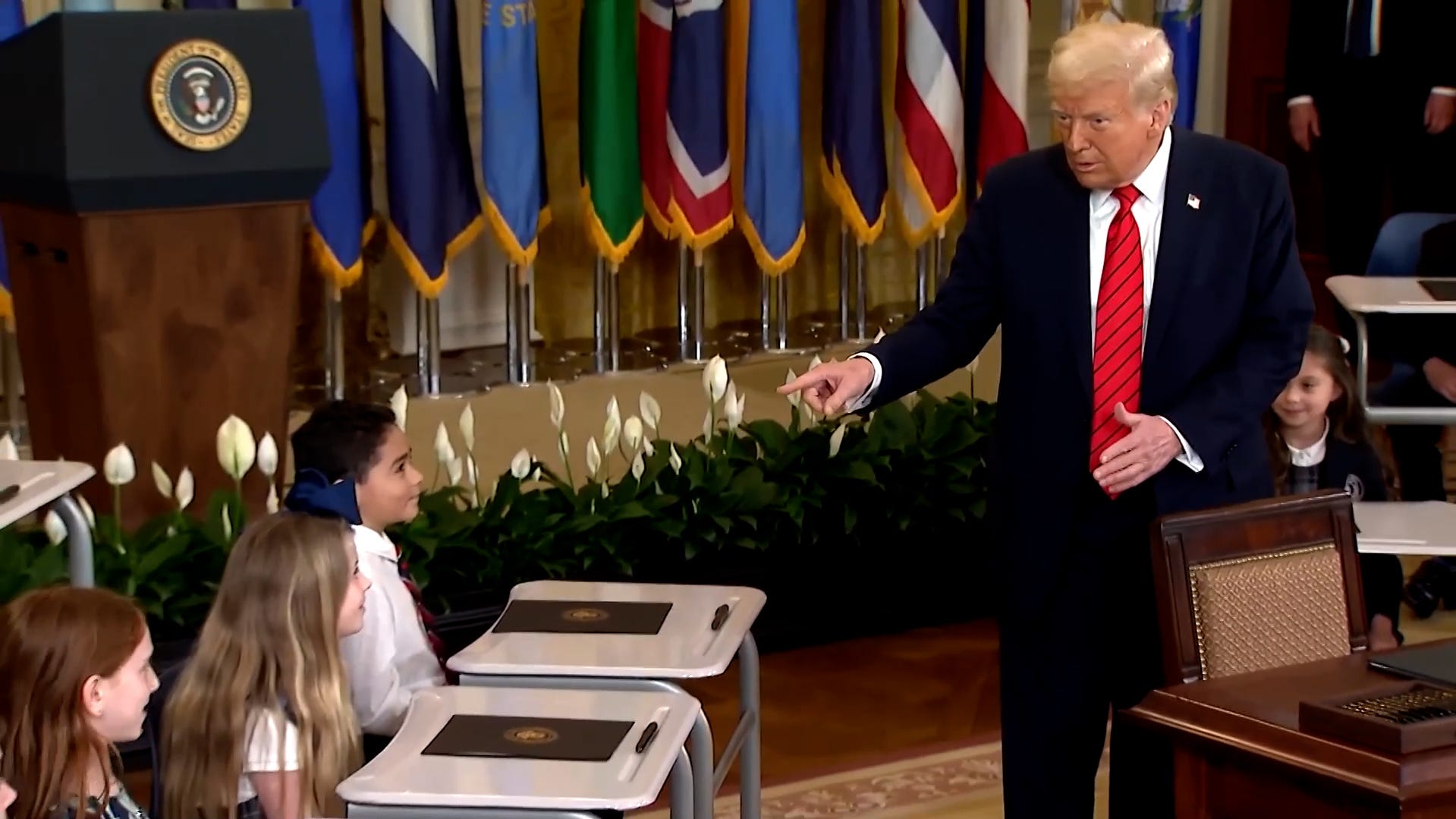Why a judge brought up Dunkin' Donuts at a hearing about Trump's Education Dept. layoffs
An analogy made from the bench by a federal judge on Friday seemed to indicate he may be leaning toward temporarily reinstating fired Education Department staffers.

"Do you drink coffee?"
The question might not have seemed especially relevant to a lawsuit challenging President Donald Trump's dramatic downsizing of the U.S. Department of Education. But in a Massachusetts courtroom on April 25, Dunkin' Donuts, a beloved staple of the region, and its famous coffee suddenly became very pertinent.
District Court Judge Myong J. Joun, a Biden appointee, posed the question to Eric Hamilton, a Justice Department lawyer, during a hearing to consider a preliminary injunction reversing Trump's decision to fire hundreds of Education Department workers.
In the judge's mind, running the federal agency is like keeping his morning coffee routine on track. Think of the Education Department as Dunkin' Donuts, he told the Trump administration's lawyers. Compare the services the agency provides to the coffee that Dunkin' serves.
"When I walk in, there's a person behind the counter," he said. "There's a person making a fresh pot of coffee. If I want a sandwich, there's a person at the sandwich station."
"Let's say one morning, there's no one there," he said.
Without a barista, he said he wouldn't be able to order coffee. In the same way, states aren't getting the research and funding they need because the federal workers who usually help them are gone.
"The relief that they're seeking is not that employees be hired, but that they want their cup of coffee," he said. "There's a distinction."
Joun appeared open to granting a preliminary injunction, which would temporarily allow dismissed workers to head back to their jobs.
In March, the Education Department abruptly terminated roughly 1,300 staffers across the country as part of what Education Secretary Linda McMahon referred to as the agency's "final mission." The workers had a wide range of legally required responsibilities, including doling out federal funding to low-income K-12 schools, enforcing civil rights laws on campus, helping student loan borrowers and approving financial aid for colleges.
"The department is no longer functioning," a lawyer representing a group of states that sued to stop the firings said on April 25. "And it is getting worse every day."
Hamilton, the Justice Department lawyer, disagreed.
"The proposed order is not 'give us a cup of coffee,'" he said, referring to the judge's analogy, which he felt wasn't accurate. "It is 'rehire the barista.' And that sort of framing of their lawsuit, we don't think, is something that they have standing to litigate."
As the 100-day mark of Trump's presidency approaches, an array of lawsuits have taken on his efforts to slash the federal workforce. In early April, the Supreme Court blocked an order from a lower court judge to rehire thousands of federal workers. (The move was mostly procedural.) Another judge in the District of Columbia on April 22 ordered workers to be reinstated at Voice of America, a federally funded international news service.
In the Education Department case, the Massachusetts judge's decision on the preliminary injunction is expected next week.
Zachary Schermele is an education reporter for Paste BN. You can reach him by email at zschermele@usatoday.com. Follow him on X at @ZachSchermele and Bluesky at @zachschermele.bsky.social.